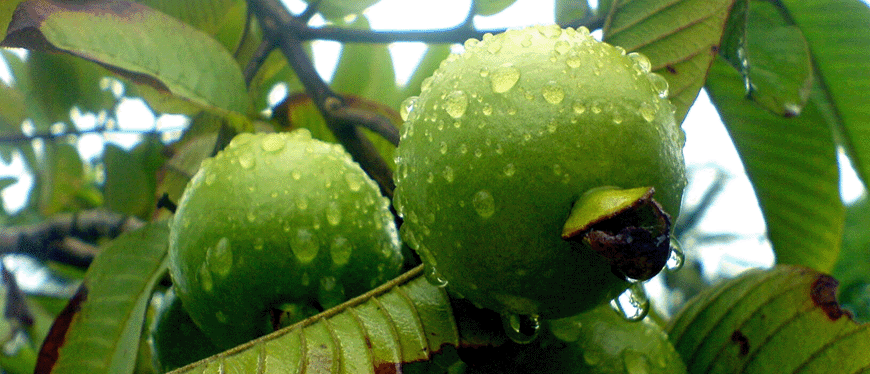Crop Production - Technologies
Osmotic Dehydration of Guava slices
Guava fruits are fleshy, juicy
with agreeable sweet taste and therefore relished more as fresh
fruits It emits a sweet aroma and is pleasantly sweet and
refreshingly acidic in flavour. It is a good source
of vitamin C. Guava fruit is highly perishable in
nature and need value addition. Traditionally guava is processed
into various products such as jelly, juice, fruit bar. A
pre-treatment, such as osmotic dehydration, can be used in order
to reduce the initial water content, reducing total processing
and air-drying time. Osmo-air dried fruits are the dehydrated fruit
products based on the novel approach towards dehydration. First
stage in osmotic dehydration is removal of water
using concentrated osmotic medium (sugar syrup)
followed by dehydration of osmosed slices using hot
air drier to a moisture content about 15%.
The product can be used alone as
dried fruit (snack) or as adjuvant with other dried fruits
like dates, cashew, almond etc. it can also be used in ice-cream
industry, confectionary, fruit salads, kheer, cakes and
bakery products. This is highly suitable for children,
mountaineers, defense forces in difficult areas where carrying
and delivering bulky and perishable fresh fruits is difficult.
-

About 7-8 kg ripe guava fruits are required to make one kg of osmo-air dried slices and shelf life of product is six months to one year under ambient conditions.
- * Osmotically dehydrated Fruit bar
-
*
Biological control of tea mosquito bug
Helopeltis
antonii on guava

